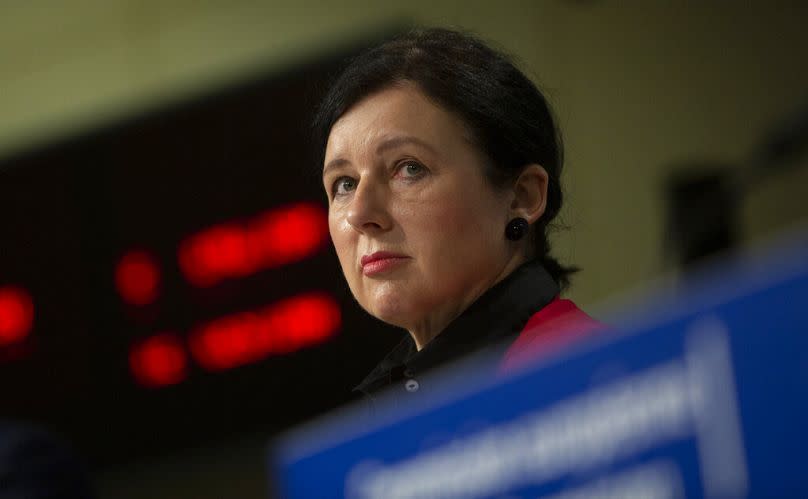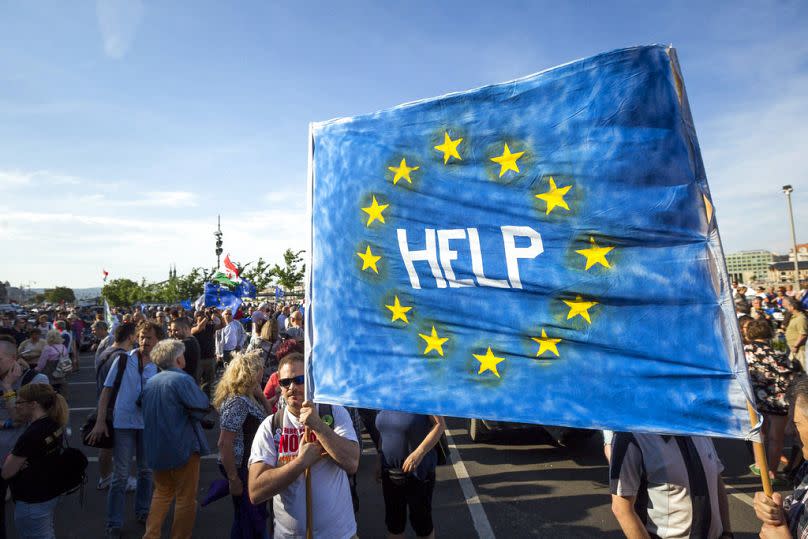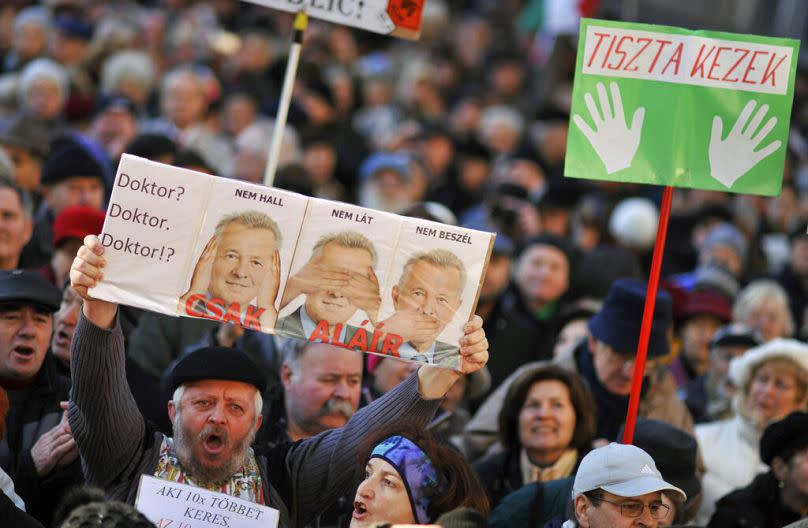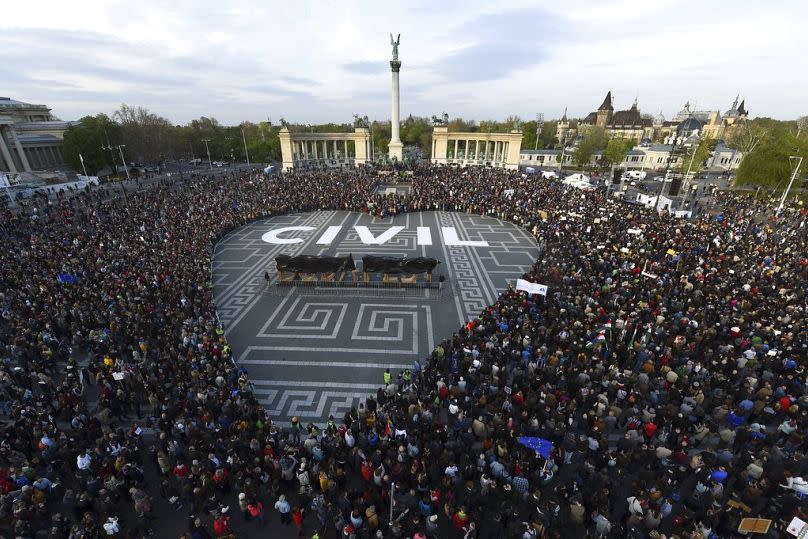Hungarian case shows the EU needs a bulletproof media freedom law

Back in 2010, when the Hungarian Parliament introduced a string of restrictions, including fines for "unbalanced coverage" of independent journalism through a new media law, several EU governments, international organisations and media freedom NGOs cried foul.
"This is a direct threat to democracy," Jean Asselborn, the then Foreign Minister of Luxembourg, said, insinuating that by introducing such a restrictive law, Hungary’s PM Victor Orbán had embraced the behaviour of autocrats — including the "last dictator of Europe", Belarus’ Alexander Lukashenka, and Russia’s Vladimir Putin.
Yet, despite the noise, the law was maintained, and the ruling Fidesz party, led by Orbán, has since had a free hand to bring independent and critical media to heel.
As a result, the Hungarian government and its private business allies now control large swathes of the country’s media industry.
Is the EU's Media Freedom Act the solution?
A decade on, the European Commission is now facing contagion elsewhere in Europe.
Last September, the EU’s executive arm published new regulation known as the European Media Freedom Act (EMFA), designed to address this challenge.
When the act was released last September, EU Commissioner Věra Jourová said that the EMFA sat somewhere in the middle between an "atomic bomb" and "cosmetics".

The EMFA is arguably the most progressive legal initiative focused on media that the European continent has seen.
As an internal market regulation, national lawmakers won’t be able to tweak or twist it to their liking, as they usually do with directives — a type of legislative act that individual EU members need to embed in their law as they wish.
The engine of capture continues to run free
That’s a good thing. But the EMFA is unlikely to achieve its ambitions, particularly in countries with a bumpy track record on media freedom, since it fails to address the corrupt allocation of public funding.
Brussels warns Hungary over its failure to respect ECJ ruling on NGO funding
Hungary’s rules for foreign-funded NGOs unlawful, says top EU advisor
The act will force media outlets to publish data about their ownership and reveal how governments make decisions on financial allocations to media outlets.

Still, it is unlikely to have a significant impact, if any impact at all, on pre-existing media capture, given that it fails to address the very engine of capture: the system of financial corruption that governments use to influence media agencies to align with the interests of the ruling politicians and their allies.
Without firm provisions on financing, the EMFA will be somewhat muted in countries where state capture is at an advanced stage and where government messaging is disseminated to a space that is almost completely free of rebuttal.
Government and business interests still deeply affect Hungary's media landscape
How we have reached this stage, in the case of Hungary, still marvels to this day.
But the reality is that, since 2010, Orbán has been allowed to embark on a massive takeover of privately-owned media free of pushback from those in Brussels who claim to defend Europe’s values.
Many of Orbán's friends, including Lőrinc Mészáros, are now owners of a bevy of media outlets across Hungary, including newspapers, television stations and radio channels.
The Central European Press and Media Foundation, which comprises some of the most politically-powerful media outlets in Hungary, is run by an ally of Orbán and the former Fidesz minister.

It is no coincidence that a large number of these companies are now chief recipients of public money for the execution of government orders in other industries, such as construction works, and are showered with state advertising money allocated by government bodies.
Poor transparency of media ownership, politicised regulators, government-controlled public media, and unfair distribution of state cash are all serious issues affecting the media.
But the real problem is the disproportionately high concentration of wealth in the media created by the collusion between governments and businesses — something independent media across Europe have been grappling with for more than a decade.
We can solve this by cutting the umbilical cord
To tackle this, the three-pronged umbilical cord linking the government, its business allies and the media needs to be pulled apart and replaced by a system that introduces limits on company access to public funds and imposes new ownership rules for media organisations.
A number of NGOs, including the International Press Institute (IPI), have also called on the European Commission to add a new article to the EMFA law to close "access to public tenders in industries outside of media for companies which own media over a certain threshold."

The IPI has stressed that the corrupt financial system of media distorts the news environment by "creating an incentive for media owners to adapt their coverage in order to curry favour with the government."
Adopting such provisions would be a bold but welcome move by the European Commission, which could stop powerful groups from gaining control of the other media systems within the EU.
It would also show that the European Commission is prepared to intervene to save Europe’s free media landscape, which is crucial for the functioning of democracy, instead of kicking difficult issues into the long grass.
Marius Dragomir is the director of the Media and Journalism Research Centre, a think tank focused on the study of media, journalism, politics and technology.
At Euronews, we believe all views matter. Contact us at view@euronews.com to send pitches or submissions and be part of the conversation.

 Yahoo News
Yahoo News 